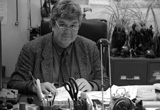Why is it so difficult to get continuity of care, or even an appointment, with your GP? And why is the GP workforce now so unhappy and depleted?
 David Zigmond offers some explanations beyond those of increasing demands and how we finance them
David Zigmond offers some explanations beyond those of increasing demands and how we finance them
Recently both the BBC and several newspapers ran features and news items on the hazardous disintegration of NHS general practice. The interviews and features, bolstered by a Nuffield Trust analysis, composed an unmistakable picture. This comprised not just inaccessible appointments and almost vanished personal continuity of care. It also portrayed an alarmingly depleted and dispirited workforce marked by career abandonment, early retirement, and sickness and burnout.
Why is this? Practitioners and pundits reiterated the usual, now familiar reasons: mostly how funding for our NHS has not matched the increasing demands made of it. Those burgeoning demands come from our increasing longevity with its incurred chronic conditions, the increased expectations that come with advancing technology in our consumerist society, and the mushrooming of mental health problems amid all this.
Is any of this disputable? Well partly: the government has claimed again and again that primary care funding and training has recently received unprecedented investment and funding. Yet even if this statement is true, it rapidly dissolves in the face of a more important truth: we are losing GPs far faster than we can securely replace them.
Why is this? Why do doctors no longer wish to do this work?
When I first started work as a GP in the early 1970s the hours were certainly as long, the clinical work similarly demanding, and the pay no better. Yet professional morale throughout careers was mostly positive: practitioners wanted to sign up at the beginning, and were reluctant to leave at the end. There were stresses aplenty, but they were different in kind. What is that difference?
The answer is that the profession has lost its personal relationships and satisfactions: its heart, soul, and élan-vitale. Paradoxically and perversely, it has lost them to the successive reforms that theoretically would improve services by yielding greater standardised efficiency and fail safety. Yet in practice the results have been very different from those intended.
The reforms have almost always led to increasing size, automation, regulation, standardisation, and centralisation of control. Superficially, this may seem like undeniable progress, but the losses incurred are subtle and much larger than the planning authorities had understood. The losses are those of human scale and responsiveness; thus personal access, relationship, and understanding; and the satisfactions and identifications that come from personal continuity. In short, we lose personal rather than technical advantages.
Each successive reform has tended to eliminate these very human rewards. So a factory-like work milieu has replaced an erstwhile family-like collegiality, corporation replaces vocation, and impersonal data and procedures displace personal understanding and care.
All these transitions make much more sense to planners and managers in the control tower of the NHS than the doctors who have to conform to them. They feel alienated, afraid, lonely, deskilled, and discounted. That is why they leave or get ill.
Meanwhile, patients struggle for appointments with GPs who are likely to be, first personally unfamiliar, and then fatigued and distracted by the many instructions and demands they have.
So what motivated the happier generation of GPs? I would say a kind of personal stewardship: tending and growing a sense of people and community. While good medical science is the overt aim and conduit, the coincidental rewards for the practitioner—of personal connection, comfort, guidance, and healing—have been, for me and most of my colleagues, the enduring and deeper satisfactions.
Clearly, the personal rewards for the GP never had the drama, charisma, or technical skill of some specialists—say cardiac or neurosurgeons. GPs rarely seem, or feel, like gods, heroes, or magicians. Their satisfactions were (until recently extinguished) more humble, slow, and nuanced.
Indeed, these erstwhile doctors were aptly named “family doctors” as they would often know individuals, and their homes and families, over many years. Not only that, but the (then) much smaller practices offered a kind of easier familiarity much like a kind of extended family, albeit professionally attired, tasked, and boundaried.
William Osler, a philosophical physician at the turn of the 20th century, said: “It is as important to know what sort of a person has an illness as what sort of an illness a person has.” In many ways that also parallels the art and science of practice, its humanity and technology.
So for several decades, until the modernist management revolution, GPs could enrich their consultations with the initial question of: what sort of person am I now encountering who is encountering this problem? And then to other considerations of context and narrative: the story and nature of their significant relationships, their network, what gets them up in the morning, what they fear when darkness comes, what do they hope for, what brings them laughter? Anger? Intolerance? Delight? . . . These are hardly medical considerations, yet they are key to personal contact, comfort, and healing—the art and heart of practice.
But modernising management has attempted to largely expel such crucial human knowledge and vagaries as if they are irrelevant impediments to the “real work” of commodifying and distributing healthcare. Such commodification is now largely modelled on competitive manufacturing industries and nervously policed by governmental watchdogs.
The forced convergence of these sticks and carrots has yielded us what we have now: a crumbling workforce of anxiously dispirited GPs who started their careers hoping to accrue the kind of skills and satisfactions they would have enjoyed a few decades ago. No wonder few GPs now want to do this job.
David Zigmond is a GP in London.
Competing interests: I declare that I have read and understood BMJ policy on declaration of interests and I have no relevant interests to declare.
